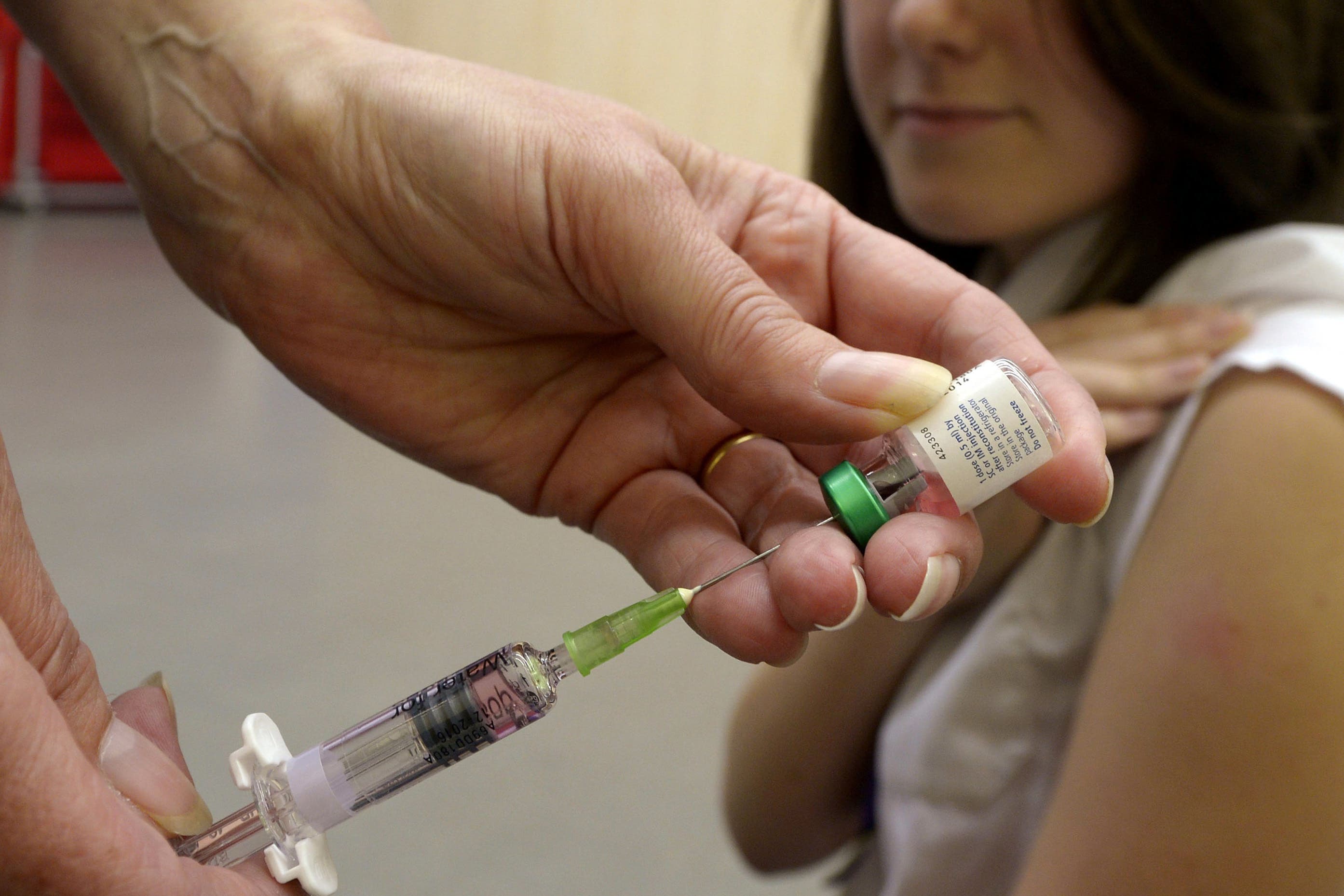Map reveals where measles cases are surging across the UK
There have been 216 cases in the West Midlands since October 2023, with 80 per cent in Birmingham
Your support helps us to tell the story
From reproductive rights to climate change to Big Tech, The Independent is on the ground when the story is developing. Whether it's investigating the financials of Elon Musk's pro-Trump PAC or producing our latest documentary, 'The A Word', which shines a light on the American women fighting for reproductive rights, we know how important it is to parse out the facts from the messaging.
At such a critical moment in US history, we need reporters on the ground. Your donation allows us to keep sending journalists to speak to both sides of the story.
The Independent is trusted by Americans across the entire political spectrum. And unlike many other quality news outlets, we choose not to lock Americans out of our reporting and analysis with paywalls. We believe quality journalism should be available to everyone, paid for by those who can afford it.
Your support makes all the difference.Immediate action is needed across the country to ensure children are vaccinated against potentially deadly measles amid a surge of the infection, the UK’s top health body warned.
Professor Dame Jenny Harries, chief executive of the UK Health Security Agency (UKHSA), urged parents to check if their children have had the measles, mumps and rubella (MMR) jab as hundreds of cases were confirmed in the West Midlands.
There have been 216 confirmed cases and 103 probable cases of measles in the West Midlands, with 80 per cent in Birmingham, between October 2023 and January 2024.
“Immediate action is needed to boost MMR uptake across communities where vaccine uptake is low. We need a long-term concerted effort to protect individuals and to prevent large measles outbreaks,” Prof Harries said.
But where have measles cases been confirmed? And which region has the highest outbreak of the infection? The Independent has put together a map below.
Between January 2023 and November 2023, 104 cases were confirmed in London. Eight cases were found in the North West of England, with the same number for the East Midlands.
Meanwhile, there were 24 cases across the South West and South East of England. Seven cases were confirmed in the East of England and there were three in the North East.
In the West Midlands, 28 cases were confirmed over the same period. But the region has seen a surge of 216 cases over five months between October 2023 and January 2024.
Prof Harries warned low vaccine uptake in the region now presented a “very real risk” of the virus spreading to other towns and cities.
“Colleagues across the West Midlands have worked tirelessly to try to control the outbreak, but with vaccine uptake in some communities so low, there is now a very real risk of seeing the virus spread in other towns and cities,” she said.

Measles can spread very easily among the unvaccinated, especially in nurseries and schools. According to the UKHSA, it can be a very unpleasant illness and can lead to hospitalisation and death in some cases.
People in certain at-risk groups including babies and young children, pregnant women, and people with weakened immunity, are at increased risk of complications from measles, the health body said.
Measles usually starts with cold-like symptoms, followed by a rash a few days later. Some people may also get small spots in their mouth. A rash usually appears a few days after the cold-like symptoms, according to the NHS.
Over 99 per cent of those who have two doses of the MMR vaccine will be protected against measles and rubella. The vaccine also provides protection against mumps.
Although mumps protection is slightly lower, cases in vaccinated people are much less severe, highlighting the importance of the MMR vaccination.
In the 1990s and 2000s there was a fall in children receiving the jab due to false claims the vaccine was linked to autism, and the UK lost its measles-free status three years after virus transmission was eliminated.
The World Health Organisation declared the UK measles-free in 2016, but this has not been maintained. From 2022-2023, the percentage of children vaccinated by their second birthday was 89.3 per cent.
Professor Sir Andrew Pollard, Chair of the UK health department’s Joint Committee on Vaccination and Immunisation, previously told The Independent: “The main reason for this new outbreak is the increase in unvaccinated children in the last few years.
“Vaccinations have decreased below 90 per cent and this is dangerous. The vaccine is powerful if we use it, and it will protect our children.
“We must act now and the increased cases are a warning that there will be consequences if we don’t. There will be children with severe infections, brain damage and even death.”
Join our commenting forum
Join thought-provoking conversations, follow other Independent readers and see their replies
Comments